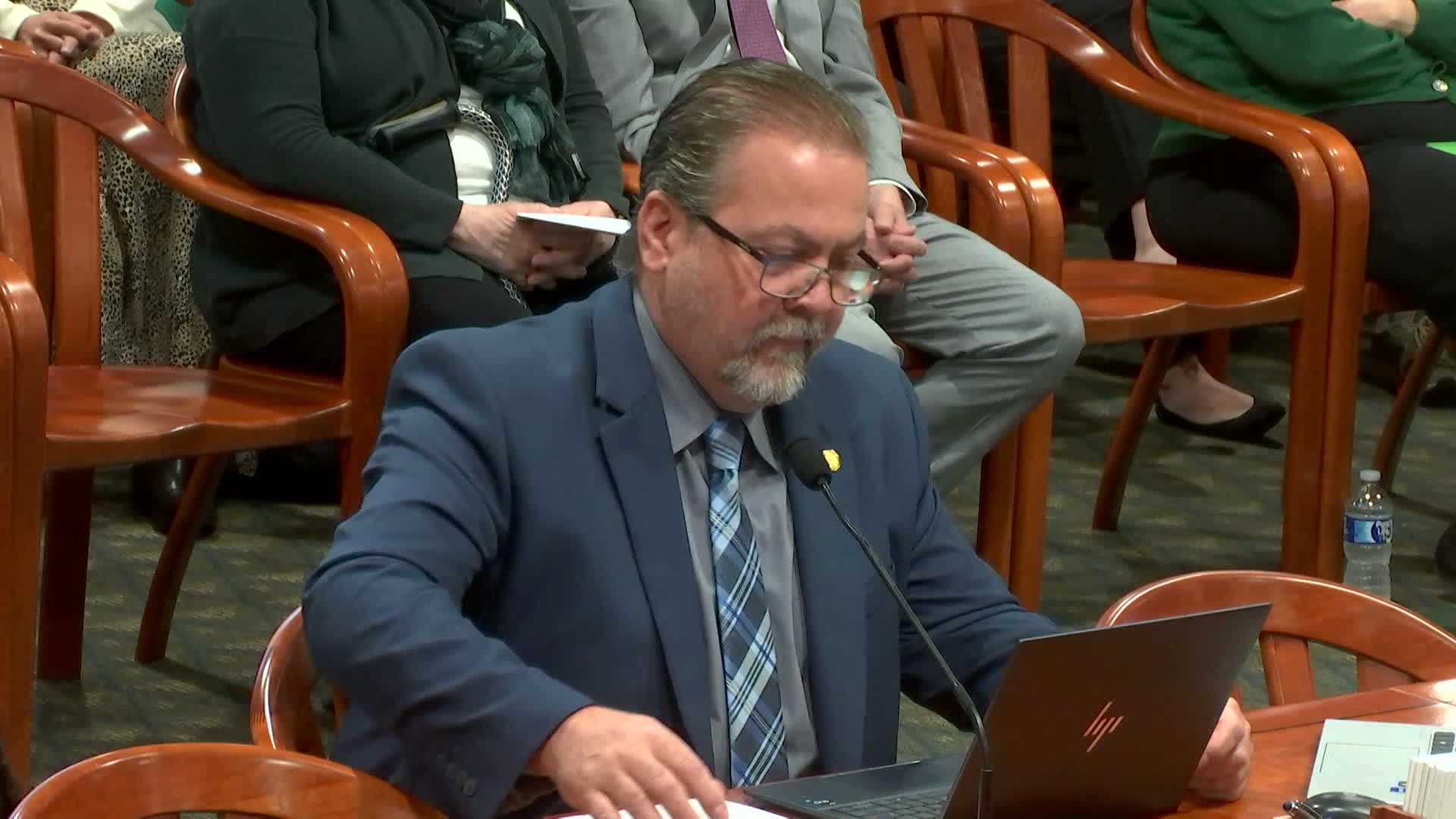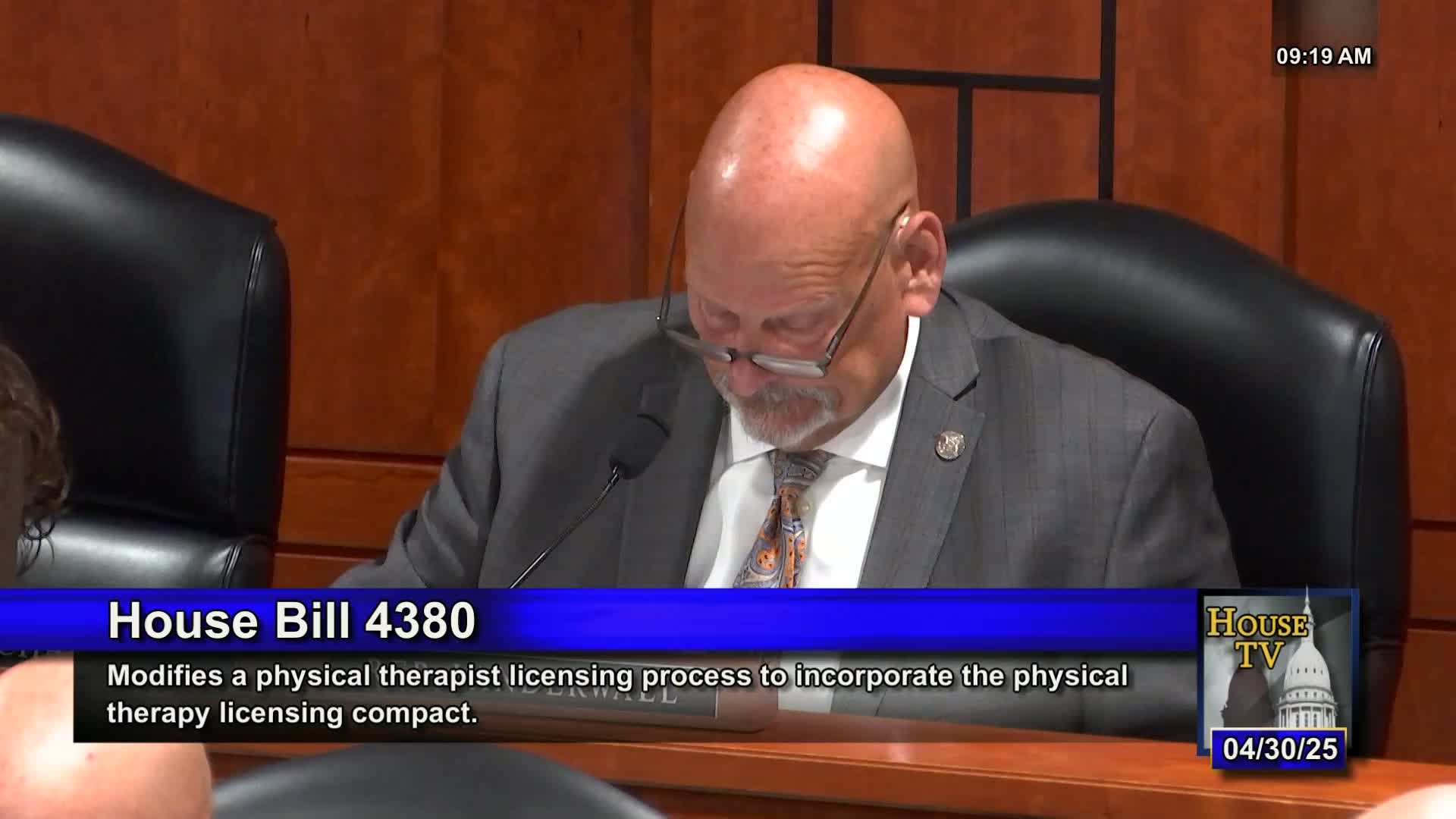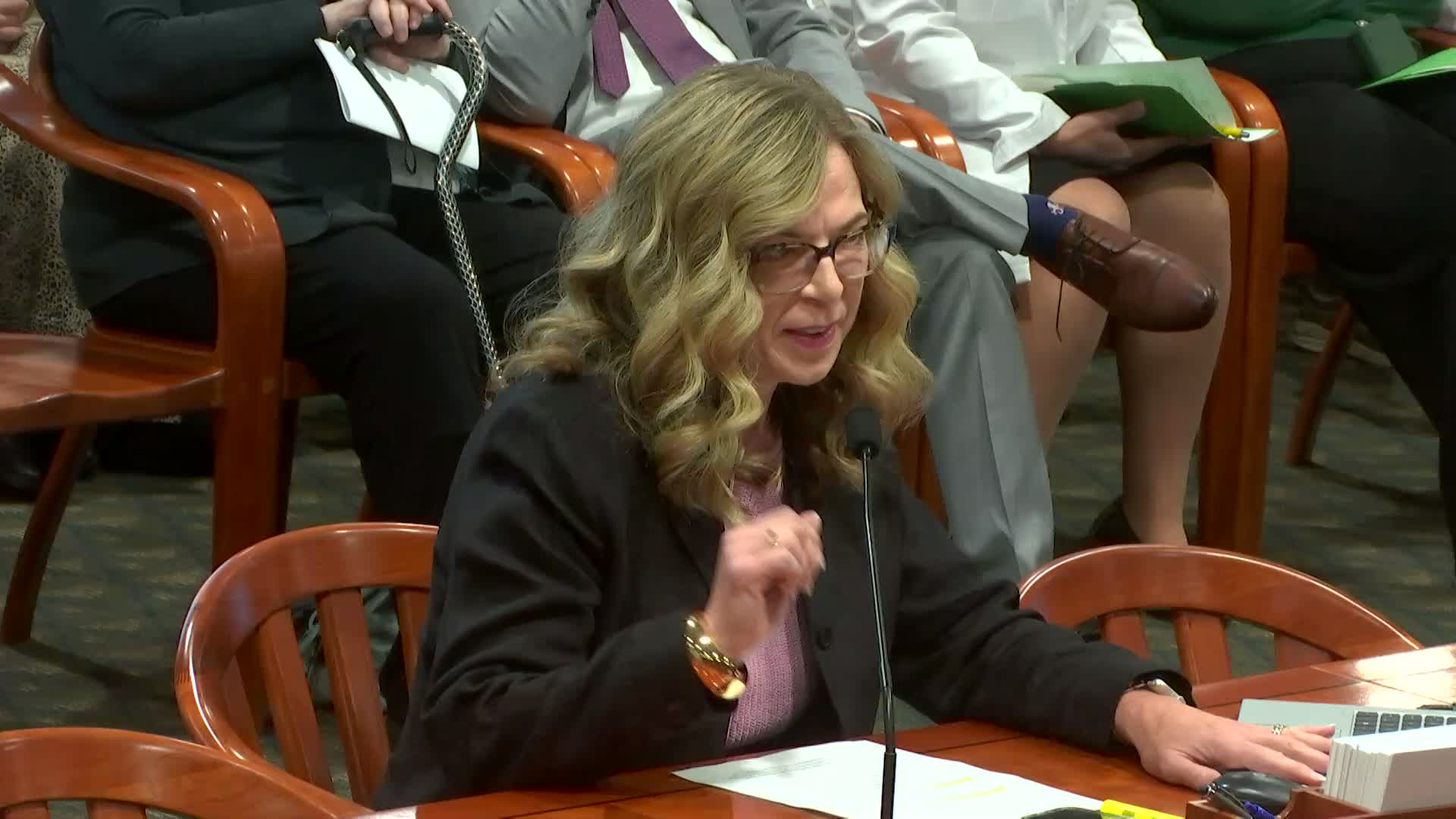Article not found
This article is no longer available. But don't worry—we've gathered other articles that discuss the same topic.

Heated testimony on HB 4399: nurse practitioners seek full practice authority while medical groups warn of safety risks

Hospitals and nurse advocates support Michigan joining nurse‑licensure compact, citing staffing and telehealth benefits

House Health Policy committee adopts substitute for HB 4101 and reports HB 4380 to the floor

